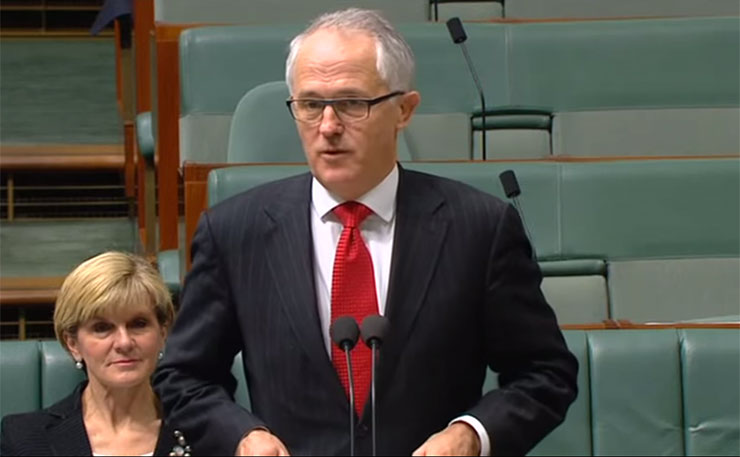An increase or broadening of the GST will reshape our tax system in a way that sees the poor contribute more and the well-off pitch in less. Those who want that are using the efficiency argument as a distraction, writes Matt Grudnoff.
Yesterday the Prime Minister gave a speech at the Melbourne Institute where he vowed to put fairness at the centre of tax reform.
“Fairness I repeat is absolutely critical,” Malcolm Turnbull said. “Any package of reforms which is not, and is not seen as fair, will not and cannot achieve the public support without which it simply will not succeed.”
Yet the focus of the tax reform debate is on the most unfair tax, the highly regressive GST.
If fairness is the main issue then why focus on an unfair tax?
Broadening and/or increasing the GST is held up as the most responsible way to reform our tax system. Like a parent patiently telling a child that it is important to eat their vegetables, we’re told by business leaders, economists and right wing tax hating politicians that it is in our own best interest to accept a dose of GST reform.
Close your eyes, block your nose and swallow. It will all be over before you know it.
The GST, we are told, is good for us because it is more efficient. More efficient taxes have less impact on the economy and so we are all better off if we choose them. Who precisely is better off is left unsaid.
We’re told the GST is more efficient. But more efficient than what? A whole host of groups are lining up to claim that the tax they pay needs to be cut with revenue from an expanded GST. No big surprise there. But the most popular seems to be income tax.
So how much more efficient is the GST compared to income tax? According to a new Treasury analysis, not very much.
A recent Treasury paper looked at the marginal excess burden of various Australian taxes. This is effectively a measure of how efficient each tax is. Treasury found that income tax and the GST were almost identical in how efficient they were.
The paper found that the cost to the economy of a dollar increase in GST was 19 cents while the cost to the economy of a dollar increase in income tax was 21 cents. Not a big difference.
So a progressive income tax is almost as efficient as the regressive GST. If the Prime Minister is as concerned about fairness as he claims then the choice shouldn’t be that difficult. Yet we still seem to be talking about the GST.
*We survive primarily on reader subscriptions. Please consider supporting New Matilda by subscribing, from as little as $6 per month. Click here.*
What is even stranger is that there is a tax that is far more efficient than either the GST or income tax. It’s also a tax that is under the control of the states, who are the ones crying out for more revenue. It’s a land tax.
While the GST boosters are claiming that tax efficiency should be our primary focus, there is a deafening silence on calls for a land tax.
A land tax has the added advantage that, unlike the GST, it is progressive. But for the GST boosters this might not been seen as an advantage.
The Treasurer Scott Morrison was also out at yesterday’s Melbourne Institute conference and promised that any switch away from income tax towards a bigger GST would not increase the tax take.
Think about that for a moment. If the tax take is the same after increasing the GST and decreasing income tax then the Australian tax system will become more regressive. This means that low-income households are paying more tax and high-income households are paying less.
We seem to have rapidly moved away from the Prime Minister’s promise of fairness.
And this gets to the heart of the GST debate. It is a debate that is dominated at the political level by those who hate tax; voices that also want to reduce government services, reduce taxation, and are ideologically wedded to small government.
They seem far less concerned about tax efficiency than they are about making the tax system more regressive.
The problem is the public roundly rejected the small government ideology in Abbott and Hockey’s first budget. They rejected paying to see the doctor. They rejected massive fee increases for university degrees. They rejected cuts to pensions.
Australia is an egalitarian society. So we hide attempts to reduce the size of government and attempts to make our tax system more regressive behind arguments of efficiency.
Donate To New Matilda
New Matilda is a small, independent media outlet. We survive through reader contributions, and never losing a lawsuit. If you got something from this article, giving something back helps us to continue speaking truth to power. Every little bit counts.





